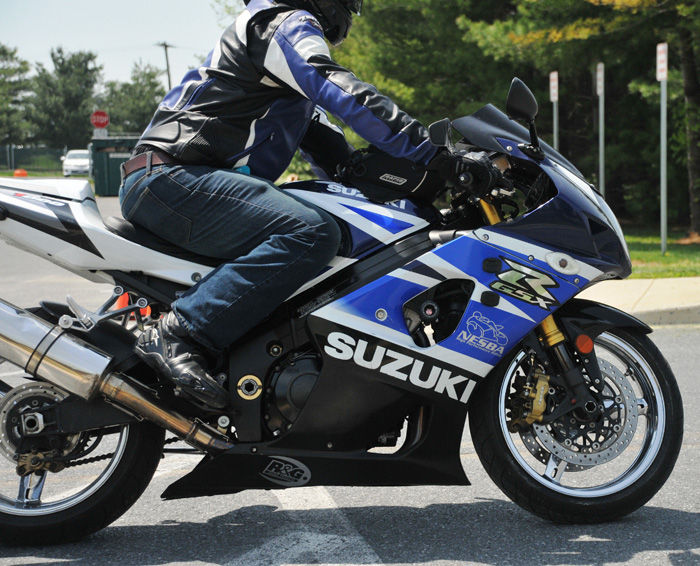Fort Detrick Motorcycle Riders Rev Up for Safety Preparation
As this year's motorcycle season gears down, Fort Detrick motorcycle riders should begin to prepare for next year's season by thinking about ways they can have a safer and more enjoyable riding experience.
Experienced motorcycle rider and Fort Detrick motorcycle mentorship program leader Garrison Command Sgt. Maj. Richard Jessup offers several tips and recommendations:
Ride within your riding capability. Ride within your comfort zone and attempt new moves only when you are with an instructor.
Be cognizant of everyone on the road. Your awareness should include other motorcycles, automobiles and tractor-trailers. Be aware of what's going on around you and whom you're riding near.
Have an escape route. The best way to ride a motorcycle is to always have a way out. If you're riding beside a tractor-trailer and the trailer tire blows out, make sure you will be able to get out of the way of debris.
Wear personal protective equipment. The Army Safety Center recommends a Department of Transportation helmet. A helmet is the most important piece of safety PPE you can wear. A DOT helmet weighs about three pounds, has a thick polystyrene foam lining and a sturdy chinstrap. The ASC suggests wearing goggles with your helmet. The ASC also recommends wearing boots past your ankles, long pants and sleeves made of leather or heavy denim, bright colors and gloves.
Perform routine inspections. State law requires that motorcycles undergo an annual safety inspection, but if you do not operate your bike from November through April, get it inspected by a certified dealership. The chain, brake pads or cables on the clutch or brakes can collect rust or dirt and make operating your bike unsafe.
Don't operate a motorcycle under the influence of alcohol or prescription drugs. Operating a motorcycle is like operating a car. Alcohol or prescription drugs impair your judgment and slow down your reactionary time.
Fort Detrick's Safety Office offers a Motorcycle Safety Foundation course in partnership with Frederick Community College, Hagerstown Community College and Howard Community College. Beginner riders who have cruisers can go to one of these locations to learn the essential safety habits they should maintain throughout their riding careers.
The DOT's Motor Vehicle Administration also maintains a motorcycle safety program, offering training courses for new and experienced riders.
Fort Detrick personnel will host a motorcycle closeout ride this fall along a planned route through the community. Prior to cruising, installation riders can perform safety inspections of their bikes together by checking tires, wheels, controls, lights, oil, the chassis and the kickstand. Fort Detrick senior motorcycle mentors and the safety team will validate the inspections, along with having their own bikes inspected.
"As we gear up for our motorcycle closeout ride, if you go out with 50 riders, you want to come back with 50 riders," said Jessup. "We look out for each other."
While keeping all of these motorcycle safety best practices in mind, don't forget to relax and enjoy the ride.
 An official website of the United States government
An official website of the United States government
 ) or https:// means you've safely connected to the .mil website. Share sensitive information only on official, secure websites.
) or https:// means you've safely connected to the .mil website. Share sensitive information only on official, secure websites.



